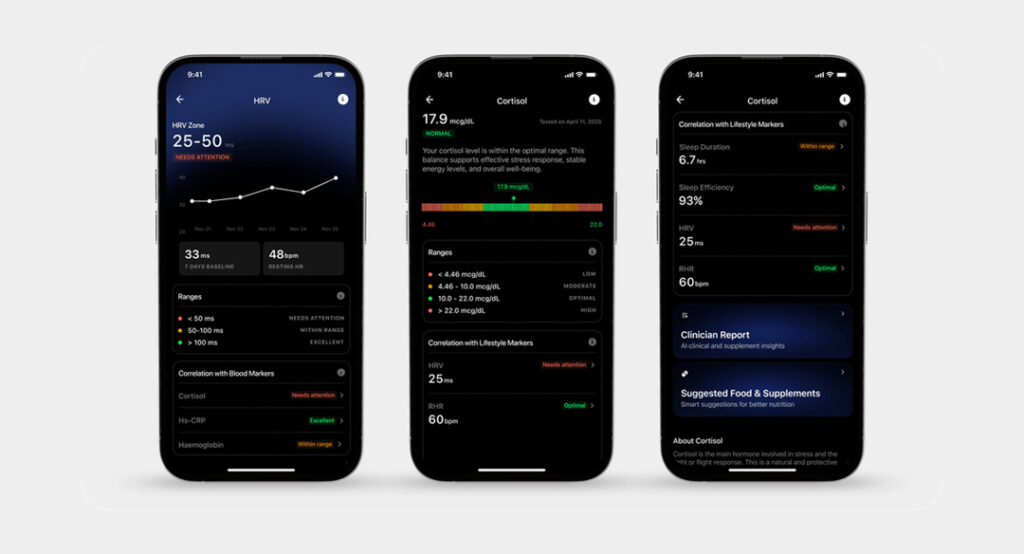A skipped period can sometimes be a cause for concern with many plausible reasons that may underlie it. Whilst this can be attributed to natural phenomena such as pregnancy or menopause, there are certain pathologies that you don’t want to avoid missing out on especially when this spans for more than 3-6 months.
A basic awareness of these conditions along with its varying clinical sequelae will enable you to gauge the gravity of the situation and also mend the root cause.
What is Amenorrhea?
Amenorrhea, the term given to this condition, can be further classified into primary and secondary amenorrhea. If the initiation of menses (aka Menarche) has not occurred by age 14 concurrently with the absence of secondary sexual characteristics, the condition is ‘Primary Amenorrhea’ and this is often a consequence of any genetic irregularities or differences in the anatomy.
On the other hand, Secondary Amenorrhea is defined as the cessation of regular menses for 3 months or cessation of irregular periods for 6 months and this particular subtype will be the major focus of this article.
There are a plethora of reasons that we can look at and as the name suggests, the missed period is “secondary” to an existing pathological condition. The leading and most common causes though are said to be polycystic ovarian syndrome (PCOS), hypothalamic amenorrhea, hyperprolactinemia and primary ovarian insufficiency. Let’s look at these conditions briefly to understand how exactly they build up to a faltered menstrual cycle.
PCOS
PCOS has become a frequently used terminology in the current times and quite evidently so, it is said to affect 1 in 10 females in the reproductive age group. An excess of androgens (male hormones) results in impaired ovum release, and hence leads to irregular menses along with other visible symptoms such as acne, thinning scalp hair, and excess hair growth on the face and body. Other contributing factors include being overweight, a family history of PCOS or type 2 diabetes and insulin resistance that is hugely affected by the lifestyle one chooses.
Hypothalamic Amenorrhea
The ovaries require certain signalling from a higher control to produce the hormones that are essential for the production of ova and the maintenance of a regular cycle. The higher seat of control here is the Hypothalamus, a portion of the brain that regulates hormone production via the pituitary gland. The connection that we are primarily concerned about here is thus termed the Hypothalamus-Pituitary-Ovarian axis. Suppression of this link results in Functional Hypothalamic Amenorrhea owing to a low estrogen state which can stem predominantly from energy deficit that arises due to disordered eating, strenuous exercise and increased stress. Female athletes are typically prone to this as their activity demands are such and they often end up not meeting the required calorie intake.
Hyperprolactinemia
One other pituitary hormone that warrants our attention is Prolactin which has the principle role in lactation. Increased secretion either due to medications or a possible tumor of pituitary gland hinders the normal production of estrogen and progesterone that are necessary for normal menstrual functioning.
Primary Ovarian Insufficiency
The last condition that we will talk about in this article is Primary Ovarian Insufficiency that arises when there is impaired functioning of the follicular (egg producing) areas in the ovaries. While this can happen due to certain inherent chromosomal abnormalities and autoimmune states, toxins from chemotherapy, radiotherapy, cigarette smoking, pesticides and chemicals may also hasten ovarian failure.
How to deal with Amenorrhea
The reasons for a prolonged absence of periods may seem aplenty but the solution when it comes to addressing secondary amenorrhea is specific to the root cause. If primary or secondary amenorrhea is caused by lifestyle factors, then making adequate changes in your diet and overall mental and physical health is crucial.

You should look at assessing the areas of stress in life and reduce the things that are causing stress. Even taking out a few minutes for a meditation session can make a lot of difference. If you can’t decrease stress on your own, ask for help from family, friends, your health care provider, or a professional counselor.
Sometimes, changing or adjusting your physical activity level can help restart your menstrual cycle. You can either opt for online workout sessions or talk to your health care provider and your coach or trainer about how to train in a way that maintains your health and menstrual cycles.
Conditions such as Hypothalamic Amenorrhea and PCOS may be improved by making changes in lifestyle and dietary patterns. Getting professional help for hormone replacement therapy may be the better option in other scenarios. Thus, keeping a constant check and being aware of your body will help you seek medical assistance for early diagnosis and management.
With multiple diagnostic tools such as blood work for testing hormonal levels, pelvic ultrasonography, and physical examination available at your disposal, early detection and interventions can certainly be considered. Remember your health is in your hands, and prevention is always better than cure!







